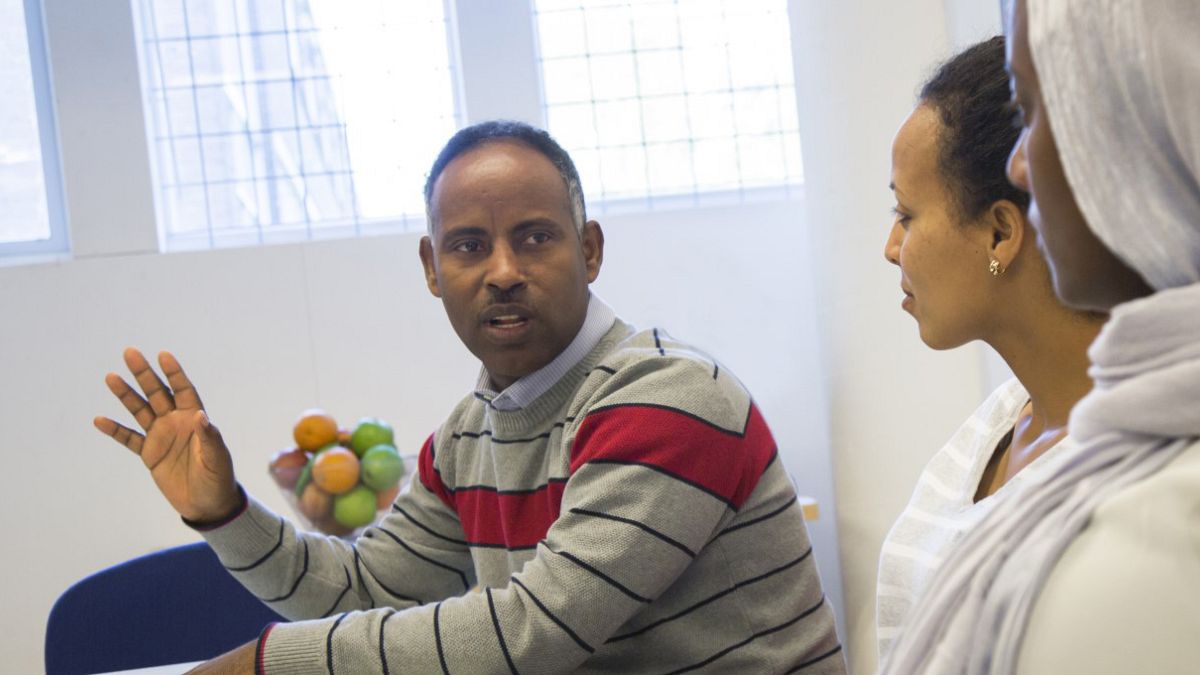An opinion piece from Amsterdam's Mayor, Eberhard van der Laan, on the city's pioneering integration of immigrants
Eberhard van der Laan, Mayor of Amsterdam
Amsterdam clears challenges on integration for refugees in society. The process of integration should start on the day of arrival -that is one of the main lessons from the past. With a little help, motivation and input of your own it is possible to fulfil your dreams here in Amsterdam and work towards building a new future in the city.
This is the story of a special ‘new’ Amsterdammer, who fled from a country under an authoritarian regime. Early access to the labour market or following an education allows for quick integration into a new society. The Amsterdam Approach for Status-holders offers a tailored pathway for refugees. This is Tesfalem’s story:
Tesfalem is from Eritrea. His wanderings eventually took him to the Netherlands. After he received his status, he moved to Amsterdam where he enrolled in the Amsterdam Status-holders Programme. He was appointed a personal case manager by the name of Ingrid.
Assessment and intake
The first step in the Amsterdam Status-holders Programme is normally the assessment. But client managers can also opt for an extensive intake interview instead. The aim is to assess what the status holder needs to settle in Amsterdam. Often learning the language and finding a job or a suitable educational course are the first steps towards this goal. Status holders are entitled to benefits, but that is not the main aim. People need to get the opportunities to build their own future. After all, living on benefits is not a future.
Integration and language
Tesfalem noticed that not all Dutch councils support refugees in the same way as Amsterdam. He is very happy to have ended up in Amsterdam.
“I have a good relationship with Ingrid, my client manager”, Tesfalem states, “and I’m really happy with the way she’s helped me. She quickly got to know me and found a training course that really suited me – where I could learn Dutch and work on my integration in the Netherlands, together with others who had educational backgrounds like mine.”
Educational psychology graduate
In Eritrea Tesfalem graduated as an educational psychologist and worked at several different schools. The aim was to get parents more involved in their children’s education, which was often a real struggle. “In Eritrea, many parents are illiterate, or functionally illiterate”, he explains. “The system in Eritrea is completely different to the Dutch system, I have found. I did have a really good job over there, but there was no possibility for me to stay.”
Orientation Programme
Like other refugees, Tesfalem enrolled in the Language Acquisition and Orientation Programme for Refugees. “The issues they address include work, education, integration and settling into the city” he explains. It turned out that Tesfalem has a real knack for languages. During the course, he was already helping his fellow students to translate texts. Ingrid noticed this and eventually managed to get him a job as an interpreter and admin supporter at Implacement, an agency who mediate for status-holders to find jobs and are also responsible for carrying out the Orientation Programme. “Without Ingrid I would only have been able to do volunteer work. Now I’m already on a six-month contract.” Tesfalem explains.
New challenges
‘The Amsterdam Status-holders Programme positively requires a custom approach,’ Ingrid emphasises. “In Tesfalem’s case it was important to find him paid work. As a client manager, my job is mainly to support the status-holders, and to help find ways which they would not be able to find by themselves. Tesfalem is a real go-getter. He is keen to take up new challenges.”
Linguistic talent
Tesfalem has only been in the Netherlands for 18 months, but already has a good grasp of the Dutch language and has a B1 level proficiency. “I have found that mastering Dutch is crucial” he explains. “You need to know the language. Ingrid and I now only talk in Dutch” He is visibly proud to have come so far in such a short period.
What the future holds
Tesfalem would like to pick up his old job again. When he attains B2 level Dutch, he will be able to further pursue his plans. ‘Level B2 proficiency means I can continue my education. I’m thinking of doing a master’s.’ Hopefully he will not have to start from scratch. His diplomas from Eritrea will soon be assessed by the UAF (University Asylum Fund).
“Here in the Netherlands I can see a lot of young Eritreans who find it really difficult to settle. Tesfalem concludes. I would like to set up a charity to give this group of people extra support. This would require more knowledge of the Dutch language and the Dutch system on my part. But I’m working at it. I’m on course.”
The views expressed in opinion articles published on euronews do not represent our editorial position
